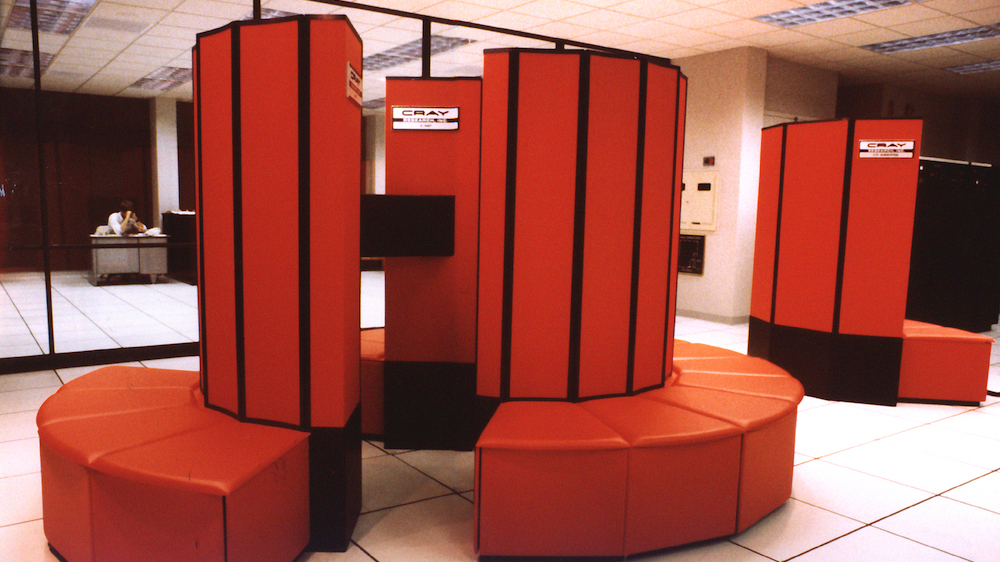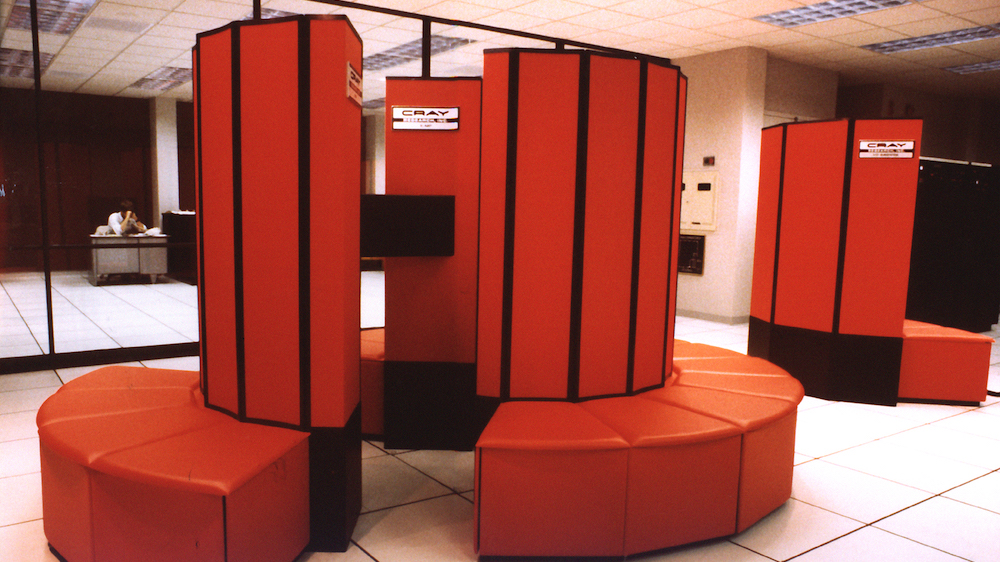
Credit: NCSA, University of Illinois, Urbana-Champaign
Nevertheless, the purchase of Cray announced this week by HPE, for $1.3 billion, raises the question again. Cray also does not seem to have a research program specifically dedicated to quantum computing. But Ray Wang, senior analyst and founder of Constellation Research, explains in an article published by TechCrunch, that "this is a smart acquisition for HPE. Cray has been losing money for some time but had a great portfolio of IP and patents that is key for the quantum era". We asked him to clarify his comments. "Many of Cray's advancements and patents in HPC and SuperComputing can be used as a foundation for the Quantum era," he explains.
And if HPE is not working directly at the moment on the construction of a quantum computer, some research in the field of optics is approaching it. "We are not working directly on quantum computing, but our Memory-Driven Computing architecture accommodates quantum, and also addresses key uses cases that quantum cannot," says Sandra Leong. Ray Beausoleil, who works for Hewlett-Packard's research laboratories, imagines using photons instead of electrons in a new generation of circuits. He works on the design of optical processors, instead of traditional electric processors. This research is part of work funded by DARPA, as part of the MESO program, which seeks to develop optical circuits. This photonic computing is very similar to quantum computing developed by manufacturers such as Google and IBM.
For HPE, it is essential to work on what is commonly called the second quantum revolution, in order to remain among the leading supercomputer manufacturers. There is still plenty of room for improvement in the field of traditional high-performance computers, but quantum computing must be anticipated. Google, IBM, Intel, and others are investing billions of dollars in it.
And finally, as Ray Wang suggests, perhaps the best solution would be for HPE to acquire one of the independent manufacturers in this sector, Rigetti or D-Wave for example: "While they did not build those machines given their lead in supercomputing, should HPE make an acquisition of a Rigetti or D-Wave, plus Cray, the engineering talent and patent portfolio would give them the ability to compete in the Quantum realm". The only certainty is that HPE cannot remain outside this market if it wants to preserve its long-term position. Does it have the means to do so and is this part of its strategy?
"Any quantum computer is going to need a conventional HPC system to be its interface to the “real world”, and as quantum systems increase the number of qubits, those demands will increase significantly. HPE already has a strong portfolio in this space which the Cray acquisition can only strengthen. We view QC as a task-specific processor – an accelerator – just like an FPGA, a GPU or the neuro-inspired analog AI processors that HPE is working on. If you have a problem that is best solved using QC, the host system can direct that task to the QC controller – the HPC system we mentioned just now – for translation into and back from, the quantum world", explain Sandra Leong. "But more importantly, we don’t believe HPE should play in the QC space. The nature or QC means that it’s only going to be useful to solve problems that are themselves quantum systems. QC simply isn’t useful for big data or AI. We believe we can best serve our customers by providing more performant, more energy efficient classical systems. And, happily, our new architecture makes it very easy for anyone to come along with new accelerators, including quantum ones. It’s worth mentioning that Hewlett Packard Labs had a very productive QC program, that we shut down a few years ago for the very reasons mentioned above".
And if HPE is not working directly at the moment on the construction of a quantum computer, some research in the field of optics is approaching it. "We are not working directly on quantum computing, but our Memory-Driven Computing architecture accommodates quantum, and also addresses key uses cases that quantum cannot," says Sandra Leong. Ray Beausoleil, who works for Hewlett-Packard's research laboratories, imagines using photons instead of electrons in a new generation of circuits. He works on the design of optical processors, instead of traditional electric processors. This research is part of work funded by DARPA, as part of the MESO program, which seeks to develop optical circuits. This photonic computing is very similar to quantum computing developed by manufacturers such as Google and IBM.
For HPE, it is essential to work on what is commonly called the second quantum revolution, in order to remain among the leading supercomputer manufacturers. There is still plenty of room for improvement in the field of traditional high-performance computers, but quantum computing must be anticipated. Google, IBM, Intel, and others are investing billions of dollars in it.
And finally, as Ray Wang suggests, perhaps the best solution would be for HPE to acquire one of the independent manufacturers in this sector, Rigetti or D-Wave for example: "While they did not build those machines given their lead in supercomputing, should HPE make an acquisition of a Rigetti or D-Wave, plus Cray, the engineering talent and patent portfolio would give them the ability to compete in the Quantum realm". The only certainty is that HPE cannot remain outside this market if it wants to preserve its long-term position. Does it have the means to do so and is this part of its strategy?
"Any quantum computer is going to need a conventional HPC system to be its interface to the “real world”, and as quantum systems increase the number of qubits, those demands will increase significantly. HPE already has a strong portfolio in this space which the Cray acquisition can only strengthen. We view QC as a task-specific processor – an accelerator – just like an FPGA, a GPU or the neuro-inspired analog AI processors that HPE is working on. If you have a problem that is best solved using QC, the host system can direct that task to the QC controller – the HPC system we mentioned just now – for translation into and back from, the quantum world", explain Sandra Leong. "But more importantly, we don’t believe HPE should play in the QC space. The nature or QC means that it’s only going to be useful to solve problems that are themselves quantum systems. QC simply isn’t useful for big data or AI. We believe we can best serve our customers by providing more performant, more energy efficient classical systems. And, happily, our new architecture makes it very easy for anyone to come along with new accelerators, including quantum ones. It’s worth mentioning that Hewlett Packard Labs had a very productive QC program, that we shut down a few years ago for the very reasons mentioned above".








 The French startup ColibriTD has raised €1 million in funding from the Earlybird fund to make quantum computing universally accessible
The French startup ColibriTD has raised €1 million in funding from the Earlybird fund to make quantum computing universally accessible